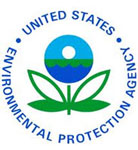 Recently we told you about how students at Loyola University had won the EPA’s P3 Award (People, Prosperity and the Planet) for their greener way, through a wetland and a distillation process, to treat and reuse byproducts of biodiesel. Our friend Ron Kotrba at Biodiesel Magazine looked a little deeper into what their innovation actually was:
Recently we told you about how students at Loyola University had won the EPA’s P3 Award (People, Prosperity and the Planet) for their greener way, through a wetland and a distillation process, to treat and reuse byproducts of biodiesel. Our friend Ron Kotrba at Biodiesel Magazine looked a little deeper into what their innovation actually was:
I reached out to Zach Waikman, the biodiesel lab manager at Loyola, who provided some clarity to the project behind the P3 Award…
Loyola undergraduate and graduate students and faculty mentors will design, test, and implement an innovative, cost-effective sustainable system for treating contaminated wash-waters resulting from our student-led Biodiesel Program. This project is original in its approach to treating wastewater on-site with environmentally benign living technologies. It will be the first known attempt to use living machine technology to solve the biodiesel wastewater problem. Our technologies will be transferable and scalable.
Expected results: The primary long-term results of our P3 project will be a) designing and building an environmentally and economically sustainable biological waste-water treatment system capable of cleaning, detoxifying, and recycling 100 percent of the waste-water produced in the LUC Biodiesel Lab and b) disseminating the design and complementary materials to other sustainable biodiesel producers throughout the U.S. and the world in order to prevent unnecessary environmental pollution and increase economic solvency.
Some other things we’re able to find out from this article is that the concept of the machine is in line with an anaerobic digester, although they’re not using that biological process in their plans. The researchers believe there will lots of possibilities with the program.

